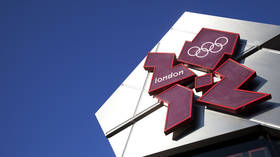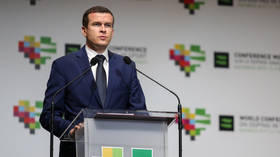Anti-doping agency reports violations by Russians at 2012 Olympics

The International Testing Agency (ITA) has announced the conclusion of its investigation into alleged doping breaches at the London 2012 Olympic Games, reporting 21 violations by Russian athletes.
The ITA published its findings on Monday, stating that a total of 73 anti-doping violations had been identified across eight sports.
The results meant that 46 medals were “reallocated” from the London Olympics, while 31 were withdrawn across four sports – weightlifting, wrestling, athletics, and canoeing.
According to the ITA, Russian athletes were responsible for 21 of the anti-doping rule violations, meaning they had 13 medals withdrawn in total, including two gold, ten silver, and one bronze.
The ITA found 11 violations in athletes from Belarus, and 11 breaches of anti-doping rules in athletes from Ukraine.
The ITA was tasked by the International Olympic Committee (IOC) in 2018 with re-analyzing samples taken at past editions of the Olympic Games, using new methods.
It has described its analysis of the samples taken at the London Olympics as “the most comprehensive of its kind.”
“Additionally, a new important detection method for anabolic steroids could be applied that was not yet available for the initial analysis of the samples in 2012,” the ITA said in its statement.
“This led to additional positive results: most of the 73 anti-doping rule violations stemming from the re-analysis program are due to this scientific advancement.”
In October, Russian runner Natalya Antyukh was stripped of the gold medal she won in the women’s 400m hurdles at the London Olympics after the Athletics Integrity Unit (AIU) imposed a retroactive ban for an alleged doping violation.
Russian athletes have faced particular scrutiny in recent years after allegations of a state-sponsored doping program – claims that Russian officials have strongly denied.
The allegations prompted a World Anti-Doping Agency (WADA) investigation in 2015 which led to large numbers of Russian athletes being banned, while others have since been forced to compete under neutral status at major international events.
Dozens of Russian athletes who were initially banned following the WADA probe later had their bans overturned on appeal at the Court of Arbitration for Sport (CAS), which stated there had been insufficient evidence to impose sanctions.













